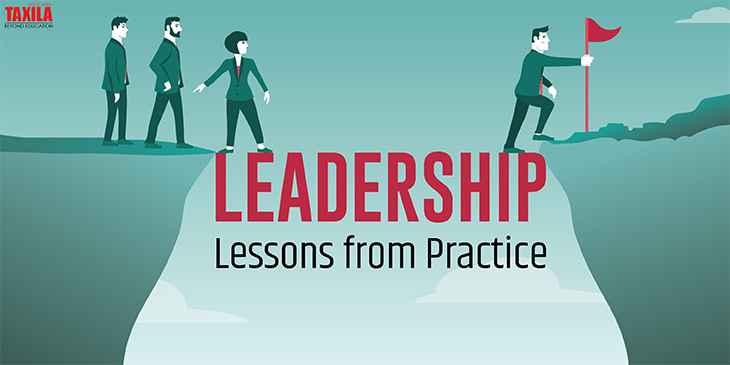
"A leader is someone whose actions inspire, empower, and serve in order to elevate others." -John Eades
The most essential element of a great leader is not his “talent” but the practice of right leadership actions. There are so many theories on leadership viz i.e., the great man theory, trait theory, behavioural theory, the transactional one, the transformational one and the situational ones. Some specify prerequisites, some are prescriptive and the rest draw inferences from research and experiences
I strongly believe that good leadership is manifested in the material and behavioural impact that the leader has on his workplace performance and on the people he collaborates with. First things first, irrespective of the workplace context, a leader has to embrace two most essential qualities i.e. responsibility & ownership in order to deliver the desired impact.
The most basic leadership impact desired is a satisfied and motivated workforce delivering the desired performance. How does that impact get delivered? I would not be wrong in predicting that more than half of workplace executives would likely describe their most basic expectation from a leader as "someone who cares about me and helps me grow". To ensure this, the leader should ensure the following essential actions and imbibe the essence in his everyday actions.
- Leaders must practice personal discipline and ensure discipline is non-negotiable at important occasions like group meetings. They have to walk the talk. They cannot be late at work or meetings without a strong reason. If there is a reason, the same has to be articulated before the event in time. A suitable acknowledgement of absence or delays or expression of personal regrets helps create a more positive atmosphere.
- Leaders need to focus on elements of a positive culture at the workplace. A positive culture is effort, merit & performance oriented. There are elements of positive reinforcement and incentives towards initiatives and outstanding performances.
- Leaders must distribute credits and give wherever due. They should not appropriate all or undue credit to themselves. Such an action may have short term returns but as the news travels, the leader loses the confidence of his team.
- Leaders should have empathy towards circumstances and their specificity to the members of the team as each individual and his socio-economic background is different. Often, a wrong behavioural response in case of a difficult situation gives an impression of a poor treatment and spoils the image and aura around a leader.
- Leaders need to be absolutely objective and fair. They should take care not to be selective in work allocation and acknowledging an accomplishment. Specifically, they have to be sensitive towards gender issues. A leader who loses the confidence of his team in these matters would find it very difficult to get it back.
- Leaders are respectful to people in their team irrespective of gender, age and nature of work. Every person has his own individuality and each work has its own dignity and importance in the work canvas of the entire organisation.
- Leaders must trust in their people’s capabilities once they are in the team. They do not micro-manage because that doesn’t help at most workplaces. It works counter-productive as it doesn’t help improve capabilities of people’s skills and simultaneously it also reduces trust and then respect. Feedback based coaching helps build trust and motivates people to go the extra mile.
- Leaders are mindful about the growth potential of each and every member on their team in terms of their personal career potential and growth. They provide the best tools and environment to help achieve success to their team members. If the team members think that the leader would take care of their aspirations, they would be motivated and contribute more.
Occasionally giving an additional responsibility and empowering the team members gives them an opportunity to prove themselves and signal readiness for future larger responsibilities. Such leaders are seen as enablers and instil nurturing leadership potential in their teams. Clear communication is a must. It clearly lays down the workflow, responsibilities and expectations which later helps in merit-based evaluation of efforts. Poor communication and coordination is often the biggest cause of sub-optimal performance that helps neither the leader nor the team.

Dr. Kamal Kishore Sharma - (Director General)
Ph.D. IIM-A
Dr. Kamal Kishore Sharma is an MBA and Fellow (Ph.D.) of IIM Ahmedabad. In a rich corporate career span, he has worked with a PSU (SAIL), Indian Civil Services (IRTS), MNC subsidiary (ArcelorMittal Subsidiary), University & Startups. He started as a Management Trainee and rose in corporate career to an MD & CEO at an MNC. In the education space he taught (Professor) & then led (Dean, Vice Chancellor, Director) educational institutions.

